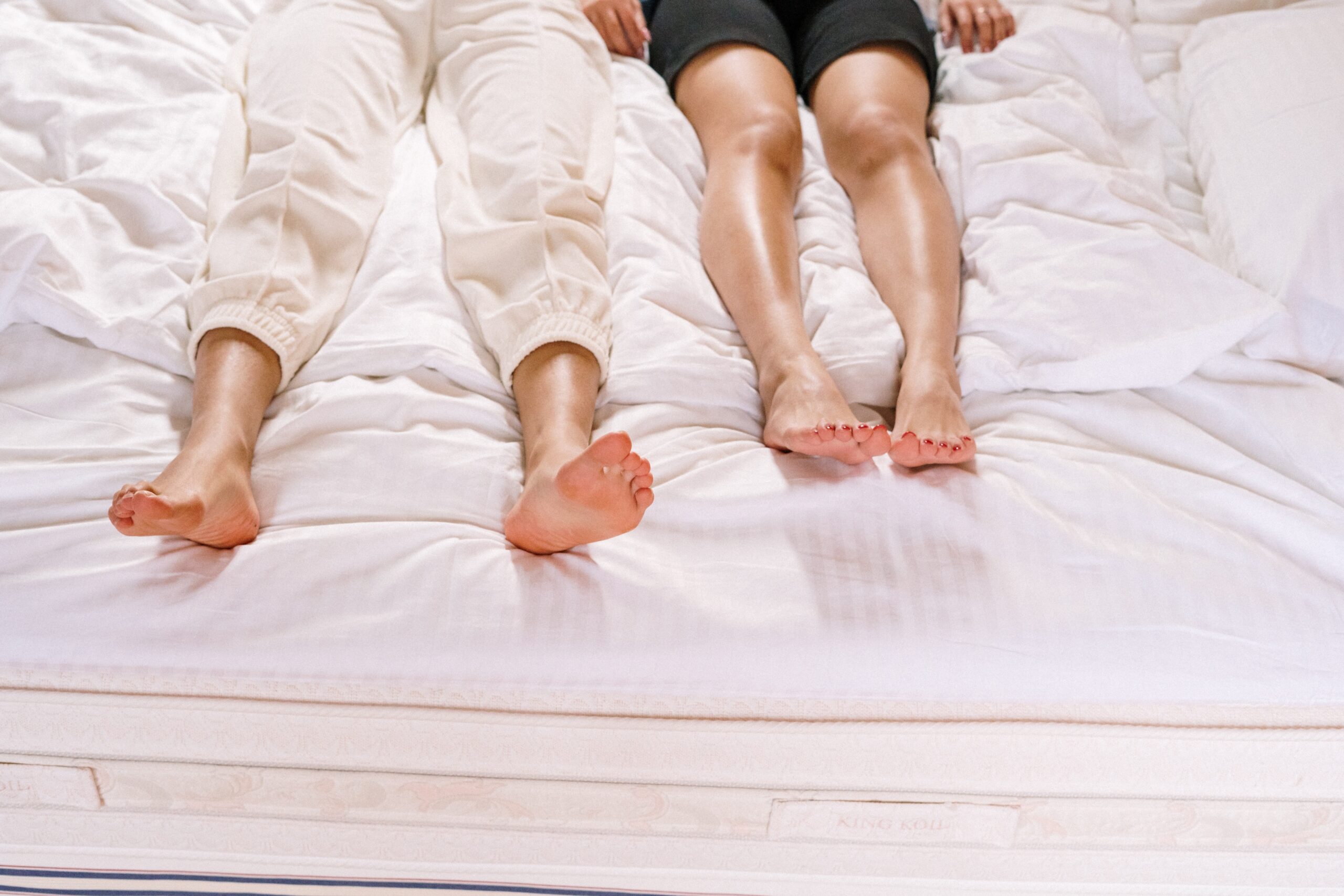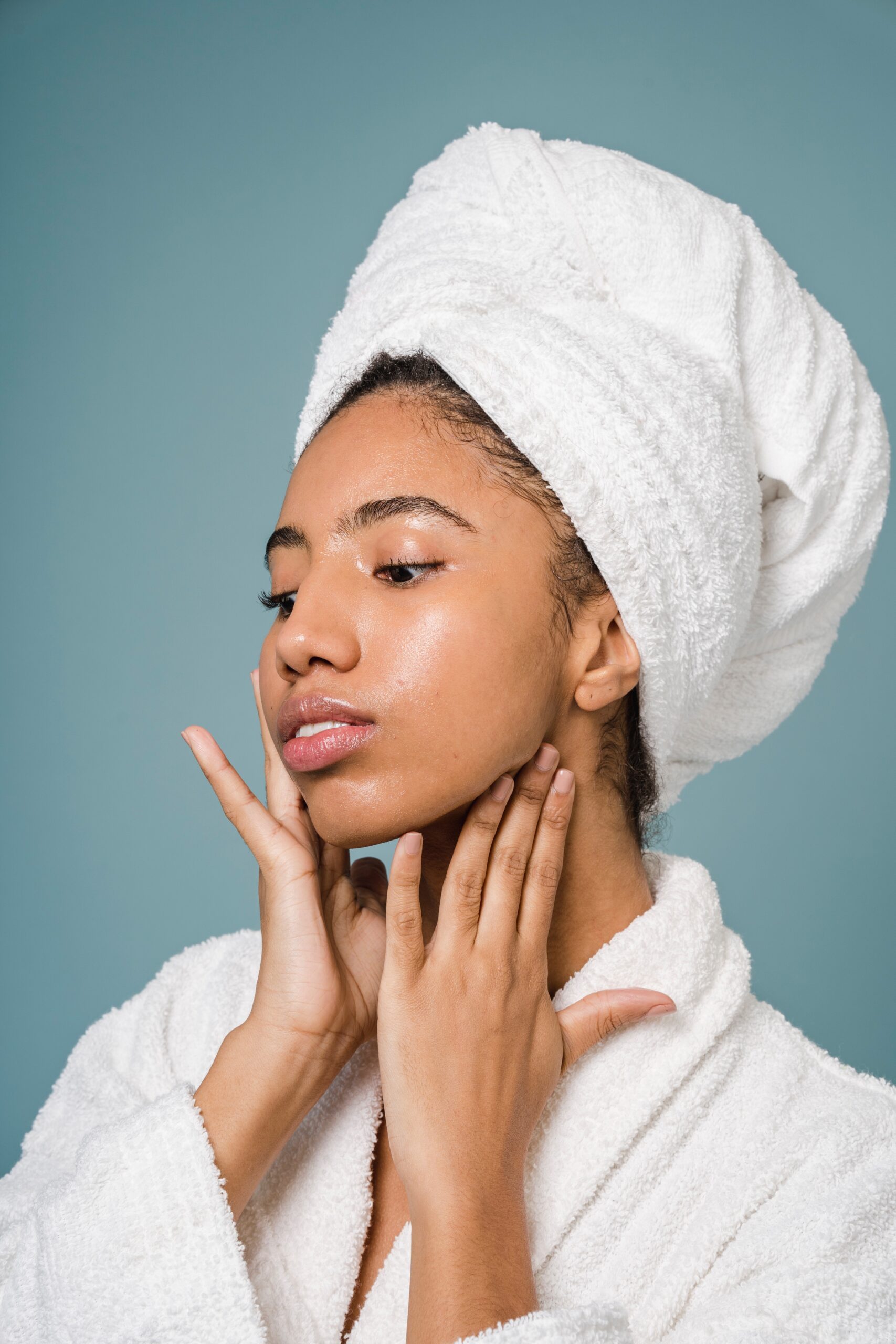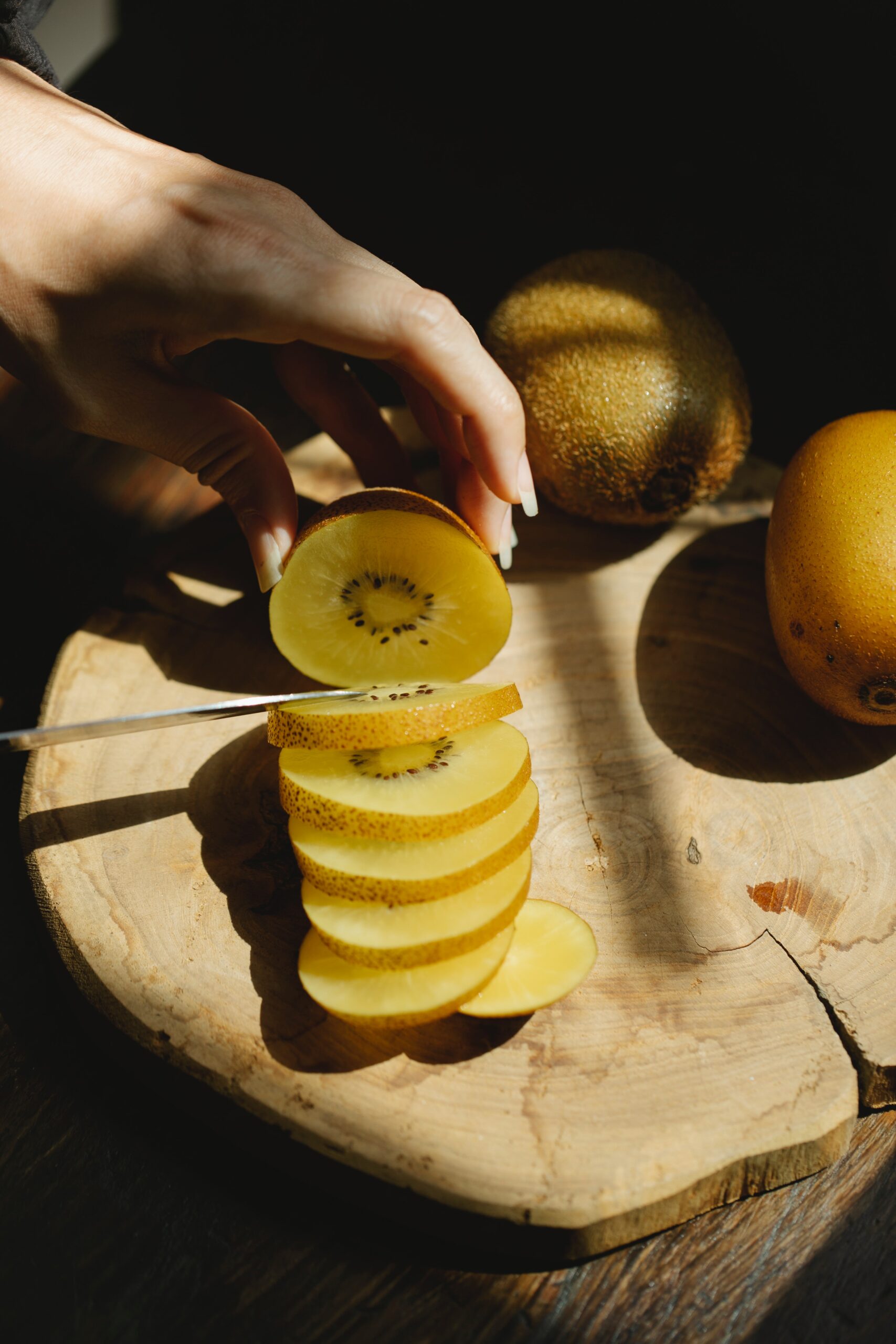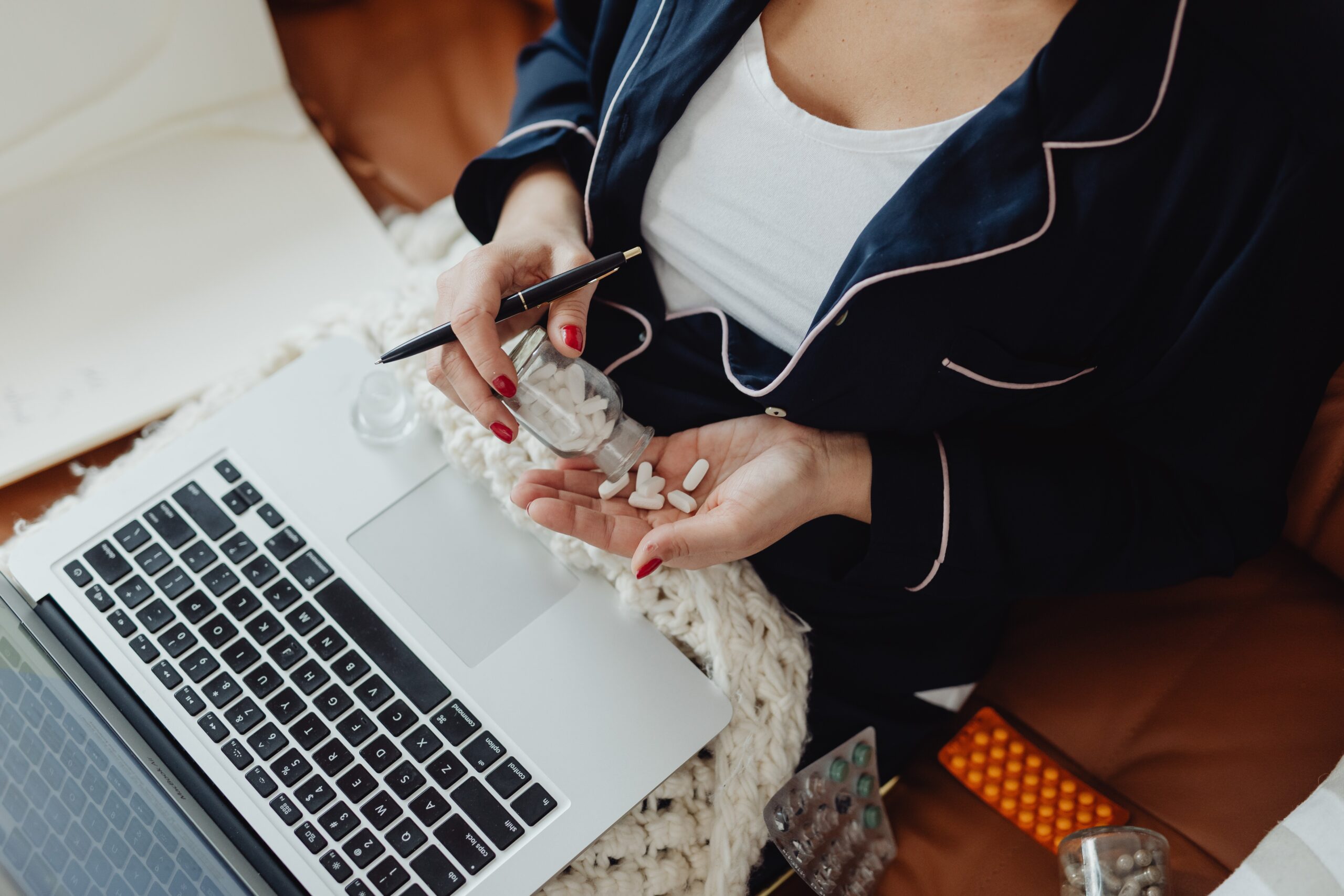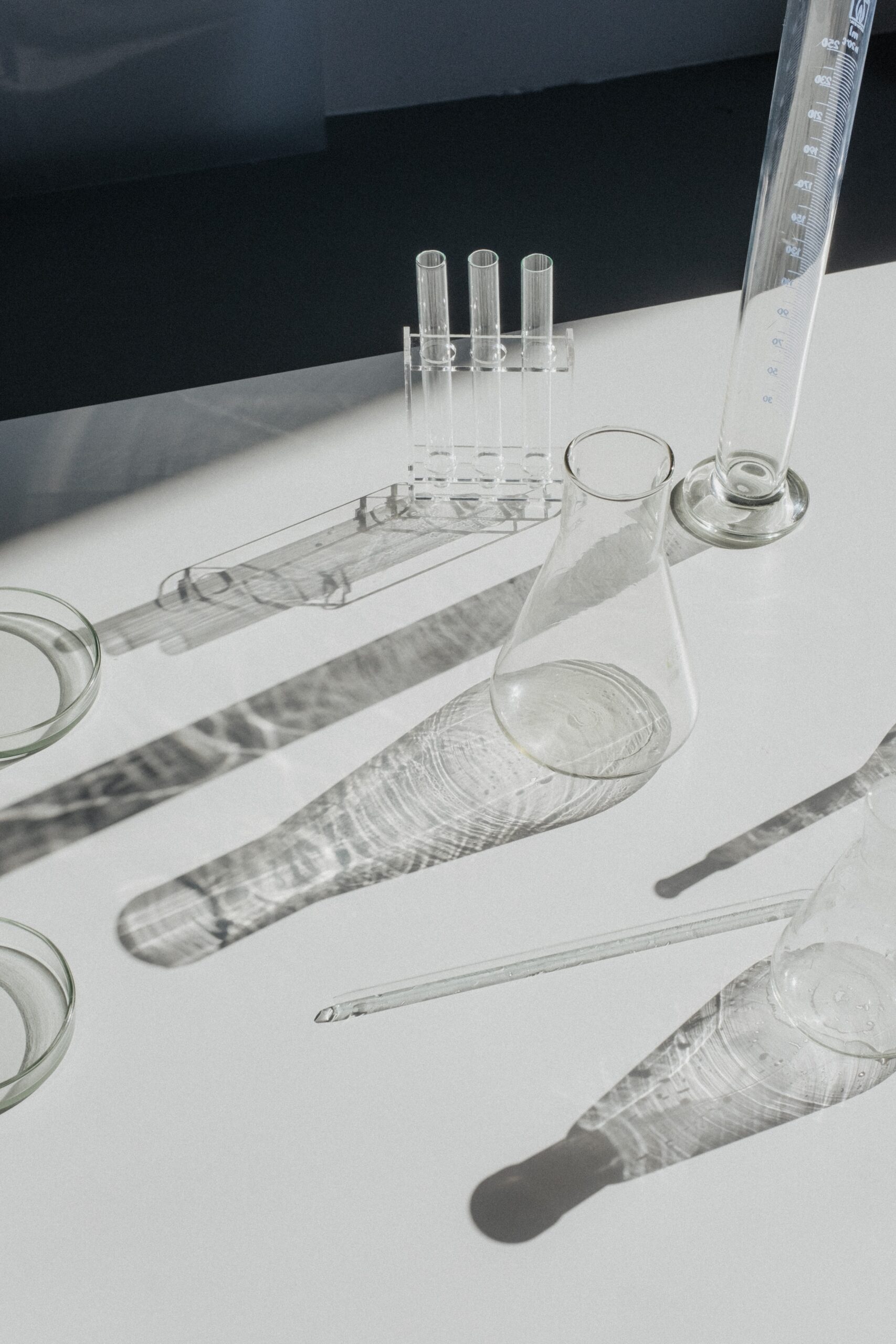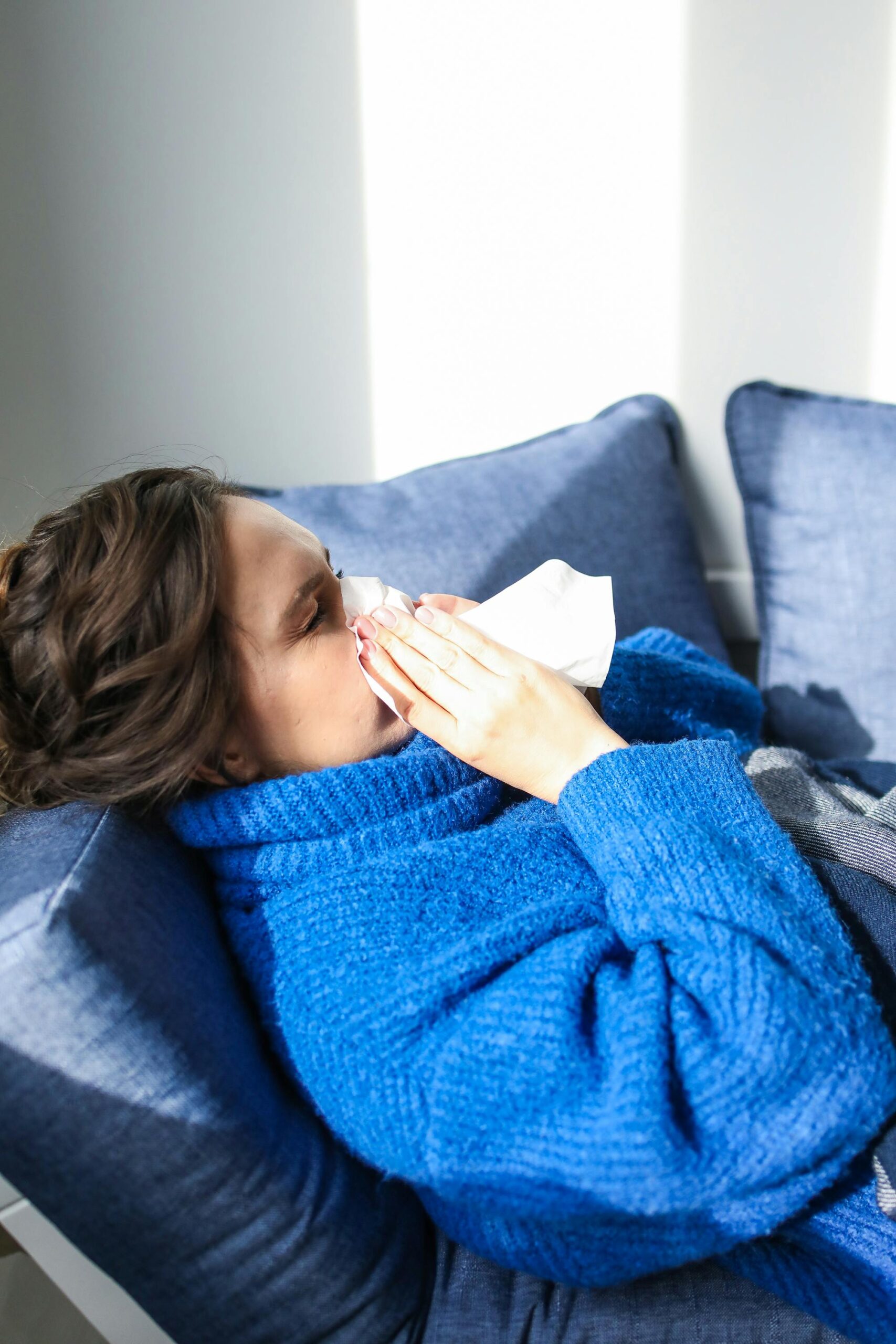Whether it’s the result of a long-haul flight, a road trip, your menstrual cycle, or simply an indulgent meal, water retention can quickly turn a pleasurable journey into an uncomfortable ordeal.
The feeling of tightness in your clothes, the swelling in your hands and feet – it’s not just physically uncomfortable, it can also dampen your mood and disrupt your plans.
But don’t worry, we’ve compiled all our best tips for reducing and preventing water retention, no matter where your travels take you.
What is water retention?
Water retention, medically referred to as edema, occurs when the body holds onto excess water that isn’t necessary or beneficial. This surplus water is predominantly situated in the interstitial space between cells rather than within the cells themselves. It can lead to puffiness and swelling, especially in the fingers, feet, legs, or the face. While water weight can manifest throughout the body, bloating tends to concentrate in the abdomen.
Why do we retain water?
Water retention can be attributed to a myriad of factors, ranging from dietary choices and hormonal fluctuations to underlying medical conditions and lifestyle habits. Let’s break down the most common reasons you may retain water.
Dietary Factors
Excessive consumption of processed foods high in refined sugars, carbohydrates, and sodium can lead to spikes in insulin levels and fluid retention. Although we need salt in order to stay hydrated and function optimally, we need it in balance with other electrolytes like potassium and magnesium. Ultra-processed foods are highly concentrated sources of sodium that lack appropriate amounts of magnesium and potassium to balance it out. Salting homemade food is not typically a concern, but overconsuming highly processed foods can lead to water retention. Certain individuals may be more salt sensitive – particularly those with high blood pressure (hypertension) and in these cases, it’s best to work with a provider to determine your specific daily salt intake. Otherwise, focus on limiting your ultra-processed food intake and salt your homemade food to taste.
Dehydration
Dehydration can signal the body to retain fluids as a protective mechanism, exacerbating the issue of water retention.
Alcohol
Excessive alcohol consumption can dehydrate the body and disrupt fluid balance, leading to temporary water retention. Chronic alcohol use can disrupt hormone balance that can lead to water retention.
Hormonal Changes
Hormonal fluctuations, especially during menstruation, pregnancy, or menopause, can cause water retention. Fluctuations in estrogen and progesterone levels throughout the menstrual cycle can lead to fluid retention or bloating in the days leading up to your period. Hormonal imbalances associated with conditions such as hypothyroidism or adrenal disorders can disrupt the body’s fluid balance and lead to chronic water retention. Hormonal fluctuations during pregnancy can cause increased water retention due to changes in blood volume and kidney function, often resulting in swelling in the legs and feet. Although imbalances in hormones contribute to water retention, there are many ways to use food and lifestyle changes to support healthy and balanced hormones. If you suspect that hormonal imbalances may be contributing to your water retention, you may want to work with us to identify and address any underlying hormonal issues.
Flying
Air travel can cause water retention for several reasons. First, prolonged sitting during flying can lead to reduced circulation and fluid pooling in the lower extremities, resulting in swollen ankles and feet. Airplane cabins have low humidity levels that can contribute to dehydration and trigger the body to hold onto water. There are also changes in air pressure during flight that can affect fluid balance within the body, potentially exacerbating water retention for some people.
High Altitudes
Being at high altitudes can cause mild water retention due to changes in atmospheric pressure.
Medications
Certain medications, such as corticosteroids, hormone replacement therapy, nonsteroidal anti-inflammatory drugs (NSAIDs), and some antidepressants, can cause water retention as a side effect. Birth control pills containing estrogen can lead to water retention and bloating because they cause the body to retain sodium and fluid, leading to swelling and discomfort, particularly in the breasts, abdomen, and extremities.
Inactivity
Lack of physical activity can contribute to poor circulation and fluid buildup in the extremities. Even short periods of inactivity, like sitting on a plane or in a car, can allow fluid to build. Moving your body is one of the best tools you have for keeping water retention and bloating at bay. Plus, regular movement supports balanced hormones that can further reduce and prevent water retention.
Heat
Excessive heat can cause blood vessels to dilate, leading to increased fluid leakage into surrounding tissues. High temps can also lead to sodium depletion through sweating, triggering the body to retain water to restore electrolyte balance.
Underlying Medical Conditions
Occasional mild water retention is normal, especially during travel, but if you experience persistent or severe water retention, it may indicate an underlying health concern. Conditions such as heart failure, kidney disease, liver disease, thyroid disorders, and venous insufficiency can lead to water retention and should be addressed with a qualified healthcare provider.
How to tell if you’re retaining water?
Distinguishing between water retention and other forms of weight gain or swelling can be challenging, but there are several signs and symptoms to look out for.
Puffiness and swelling, particularly in the fingers, feet, ankles, legs, or face are the most common symptoms of water retention. Swelling can make the skin appear stretched, shiny, or dimpled and it may feel tight and uncomfortable. This excess fluid accumulation can also lead to stiffness and reduced range of motion in the joints.
Water retention can lead to bloating, particularly in the abdominal area, that may cause a feeling of fullness or tightness in the abdomen. Some people notice increased urination or frequent nighttime urination, as well as fatigue, lethargy, or mild headaches along with water retention.
Some people struggle with retaining water during certain times in their menstrual cycle due to fluctuations in hormone levels, particularly estrogen and progesterone. If you consistently notice water retention at specific times in your cycle, we suggest focusing on balancing your hormones to help you feel comfortable throughout every phase of your cycle.
Holistic Ways to Eliminate Water Retention
Holistic approaches to managing water retention involve addressing the underlying imbalances in the body’s systems and intentionally supporting fluid movement and elimination. Here are our favorite holistic strategies for reducing water retention:
Nutritional Interventions
Reduce Ultra-Processed Foods
Consuming excessive amounts of ultra-processed foods can contribute to fluid retention since they are often high in refined sodium without the appropriate amount of potassium/magnesium to balance it out. Limiting processed foods, canned goods, and high-sodium condiments can help balance sodium levels in the body. We often rely on packaged or restaurant foods that are rich in refined ingredients, sugar, and sodium when we’re on the go. Rather than relying on these ultra-processed foods, focus on building meals around lean proteins and plenty of vegetables and plan to pack your own snacks.
Increase Potassium-Rich Foods
Potassium helps balance sodium levels and promote fluid balance. Incorporate potassium-rich foods such as bananas, avocados, sweet potatoes, spinach, and tomatoes into your diet.
Increase Magnesium-Rich Foods
Including magnesium-rich foods in your diet can be particularly beneficial for managing water retention, as magnesium plays a crucial role in regulating fluid balance and promoting healthy kidney function. Include leafy greens like spinach and kale, nuts, seeds, whole grains, legumes, avocado, dark chocolate, and bananas. When traveling, bring single serving nut and seeds packs in your carry on for a magnesium and fiber rich snack.
Stay Hydrated
Adequate hydration is essential for maintaining fluid balance in the body. Aim to drink plenty of water throughout the day to prevent dehydration, which can exacerbate water retention. Pack a reusable water bottle for summer travel and make sure to keep filling it up! Traveling by plane is dehydrating, so plan to drink even more than normal while flying.
Herbal Teas
Certain herbal teas, such as dandelion tea, parsley tea, and green tea, have diuretic properties that can help reduce water retention. Bring tea bags on the plane or keep some in your car for road trips. You can find hot water at almost every gas station and airport.
Eat Natural Diuretics
Certain foods have natural diuretic properties that help your body excrete excess water. Cucumber, celery, watermelon, lemon, ginger, and dandelion greens are all natural diuretics. Chopped cucumber, celery and watermelon make easy travel-friendly snacks. Start your trip with a slice of lemon and chunk of ginger in your reusable water bottle. You can easily fill it up with hot or cold water to make a diuretic tea for your travels.
Electrolytes
Electrolytes such as sodium, potassium, chloride, calcium, and magnesium help regulate fluid balance by influencing fluid movement in and out of cells and maintaining proper hydration levels in the body. We love LMNT single serving packets for a balanced, sugar-free electrolyte on the go.
Balance Carb Consumption
Balancing your blood sugar can improve water retention because it helps regulate the release of insulin, a hormone that plays a key role in fluid balance. When blood sugar levels spike, insulin is released to help cells absorb glucose for energy. However, excessive insulin secretion can also lead to sodium and water retention in the body. Stabilize your blood sugar by reducing refined carb intake and focusing on getting plenty of protein, healthy fats, and fiber at each meal. Opt for complex carbs like berries, kiwis, sweet potatoes, carrots, and whole grains over refined carbs from packaged goods. We can’t always control the food available to us, but we can make intentional decisions to build our plates around nourishing whole foods.
Eat at Regular Times
Regular meal times, even while traveling, helps avoid overeating when you arrive at your destination and support balanced hormones. Pack blood sugar friendly meals and snacks for the airplane and aim to eat based on the timezone you’re traveling to. This will help jumpstart your circadian rhythm so you sleep well when you arrive and can start your first day of vacation feeling energized! Some of our favorite blood sugar friendly snacks include:
- Chomps sticks or Epic bars
- Roasted organic edamame
- Chopped carrots, cucumbers, or bell peppers with pre-portioned hummus
- Berries and mixed nuts
- Apple and almond butter
- Plain greek yogurt and kiwi
Lifestyle Factors to Eliminate and Prevent Water Retention Retention
Eliminating and preventing water retention involves adopting healthy habits that promote optimal fluid balance and circulation in the body. Here are some key strategies to help remove and prevent water retention:
Move Your Body
The fastest way to get rid of water retention is to move your body. Engaging in regular physical activity can help improve circulation, reduce fluid buildup, and promote lymphatic drainage. Aim to move as much as possible throughout the day. Walking is a great choice, but don’t be afraid to get creative! Try a boutique workout class, check out a new hike, or rent a bike to explore in a fun way.
Avoid Long Periods of Sitting
Sitting is hard to avoid and it can take some intention to remember to move, stretch, and walk around during the day. If you’re traveling and have a long layover, take a walk around the airport. Stand up at the back of the plane and do some stretching if appropriate. Or start and end your travel days with some movement to counteract all the sitting. During long work days, consider a standing desk or aim to stand up at least once an hour, take a midday walk, or try a walking pad under your desk. Small movements throughout the day can make a huge difference!
Leg Elevation
Elevating the legs above heart level for short periods can facilitate the drainage of excess fluid from the legs and reduce swelling. If your legs and feet are feeling swollen after a long day, elevating them while you sleep can help flush the fluid out.
Lymphatic Drainage
Gentle massage techniques can help stimulate lymphatic flow and reduce fluid retention in the body. Self massage areas that seem to be holding onto fluid, or enjoy a professional massage when possible. Try dry brushing, a technique that involves gently brushing the skin with a dry brush to stimulate lymphatic flow and remove dead skin cells. We also love professional lymphatic drainage treatments!
Compression Garments
If you’re on a long flight or car ride, compression socks can help keep fluid from building in your ankles and feet.
Avoid Tight Clothes
Although compression socks can be a great tool for preventing fluid build up in your feet and ankles, keep the rest of your clothing loose. Avoid tight fitting clothing around the waist and thighs that could restrict blood flow and worsen fluid retention.
Stay Well Hydrated
Adequate hydration is essential for maintaining proper fluid balance in the body. Aim to drink at least half your body weight in ounces throughout the day to support kidney function and prevent dehydration.
Eliminate Alcohol
Alcohol can dehydrate the body and impair kidney function, leading to fluid retention. It can also have profound effects on hormone levels and endocrine function, contributing to even more water retention down the line. Limit or eliminate alcohol consumption to prevent water retention and support overall health. Many cocktails can be ordered without the alcohol, so you can still enjoy a fun drink, without the downsides of alcohol.
Manage Stress
Chronic stress can contribute to water retention by triggering hormonal imbalances and impairing circulation. Practice stress-reducing techniques such as breathwork, meditation, or yoga to promote relaxation and balance cortisol (the stress hormone) levels in your body.
Hydrotherapy
Hydrotherapy involves using water for therapeutic purposes to promote circulation and detoxification. Alternating between hot and cold water in the shower or immersing yourself in a warm bath with Epsom salts can help improve circulation and reduce water retention.
Supplements and Holistic Remedies That Help Eliminate Excess Water
Supplements can be a convenient way to complement dietary changes and lifestyle modifications for managing water retention.
1. Parsley
Parsley is a diuretic herb rich in vitamins A, C, and K, as well as minerals like potassium. It may help increase urine production and reduce water retention. Fresh parsley leaves can be steeped in hot water and consumed as tea. Parsley supplements are also available in various forms, including capsules, extracts, and dried parsley leaf.
2. Dandelion Tea
Dandelion tea is made from the leaves and roots of the dandelion plant, which has been traditionally used as a natural diuretic. It helps increase urine output and reduce water retention. Dandelion tea can be consumed as a beverage or dandelion root can be taken in supplement form.
3. Grapefruit
Grapefruit contains compounds that may have diuretic effects, helping to reduce water retention. Additionally, grapefruit is rich in antioxidants and vitamins, making it a beneficial addition to the diet. Whole grapefruit or a splash of grapefruit juice diluted in water are good choices. Supplements are available in extract or capsule form.
4. Fennel
Traditionally used to reduce water retention, fennel is known for its mild diuretic properties. Fennel tea has a distinct licorice flavor – consider packing a few tea bags for your travels.
5. Horse Chestnut
Horse chestnut seed extract is commonly used to support vein health and may help reduce swelling and water retention in the legs and ankles. It contains a compound called aescin, which is believed to improve circulation and reduce fluid buildup. Supplemental forms are most commonly consumed as tablets or capsules.
6. Magnesium
Magnesium is an essential mineral that plays a key role in regulating fluid balance and supporting kidney function. Supplementing with magnesium helps reduce water retention by promoting urine production and maintaining electrolyte balance. We recommend Thorne Magnesium Glycinate.
7. Potassium
Potassium is an electrolyte that helps regulate fluid balance in the body. Low potassium levels can contribute to water retention. Supplementing with potassium may help restore electrolyte balance and reduce fluid retention. Our favorite electrolyte powder, LMNT, contains 200 mg of potassium, but other supplemental forms are available as capsules, tablets, and powders.
8. Uva Ursi
Uva ursi, also known as bearberry, is a traditional herbal remedy used to support urinary tract health and reduce water retention. It contains compounds called arbutin and hydroquinone, which have diuretic properties.
9. Celery Seeds
Celery seeds are rich in antioxidants and have diuretic properties that may help reduce water retention. Whole celery seeds can be added to meals and spice blends, or they can be steeped in hot water and for tea. Capsules are also available.
Before starting any supplement regimen, it’s essential to consult with a qualified healthcare professional, especially if you have underlying health conditions or are taking medications. Supplements should always be used in conjunction with dietary and lifestyle modifications for optimal results.
You can sign up and purchase supplements directly from our online pharmacy called Fullscript, here.
Final Thoughts:
By adopting the strategies outlined in this article, you can bid farewell to the discomfort of swelling and fluid retention. Remember, your body is resilient, adaptable, and capable of finding balance when provided with the right tools and support.
So, whether you’re exploring far-off destinations or simply navigating the daily grind, may you embark on each adventure with vitality and comfort.
Here’s to embracing life’s journey with lightness and ease.

